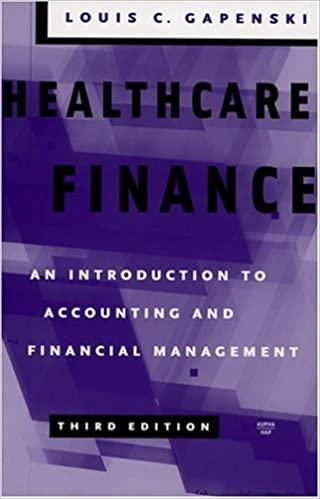Answered step by step
Verified Expert Solution
Question
1 Approved Answer
1.Find the projects Firm Free Cash Flow (FFCF) at time t = 0. 2. Find the projects FFCF from times 1 to 40. 3.Find the
 1.Find the projects Firm Free Cash Flow (FFCF) at time t = 0.
1.Find the projects Firm Free Cash Flow (FFCF) at time t = 0.
2. Find the projects FFCF from times 1 to 40.
3.Find the projects FFCF from time 41 onwards.
4. Find the NPV of starting the business.
Question 5 (total of 12 marks): See the below hotel business project. Note that 'k' is an abbreviation for kilo. So $1k is $1,000. The unit sales is measured in nightly stays. Hotel Business Project Data Project life Perpetual Initial investment in land $850k Initial investment in building $800k Depreciation of building pa See Note 3 Unit sales at end of each year 20k Sale price per unit $25 Variable cost per unit $7 Manager salary pa, paid in arrears $100k Required return on assets (WACC before tax) Tax rate 30% 10% pa Note 1: An initial (t=0) 70k investment into bed sheets and bathroom consumables (current assets) is required. These current assets will be used up and replaced at the end of each year. These current assets (CA) are expensed in the variable cost per unit at the end of each year, but the investment in these CA happens at the start of each year. Note 2: The business is expected to operate forever. The unit sales, sale price, variable cost and managers' salary are expected to be constant forever. Note 3: The building is expected to last forever and not need any upgrades. However, the government tax office only allows buildings to be depreciated straight line to zero over 40 years. Note 4: The project will be funded by equity only. Provide all answers in thousands of dollars, with final answers rounded to 2 decimal places. It is not necessary to show any working. Writing the correct answer alone will score full marks. However, if you make a mistake you will score poorly. Writing the working may allow you to score partial marks even if your final answer is wrong. Question 5 (total of 12 marks): See the below hotel business project. Note that 'k' is an abbreviation for kilo. So $1k is $1,000. The unit sales is measured in nightly stays. Hotel Business Project Data Project life Perpetual Initial investment in land $850k Initial investment in building $800k Depreciation of building pa See Note 3 Unit sales at end of each year 20k Sale price per unit $25 Variable cost per unit $7 Manager salary pa, paid in arrears $100k Required return on assets (WACC before tax) Tax rate 30% 10% pa Note 1: An initial (t=0) 70k investment into bed sheets and bathroom consumables (current assets) is required. These current assets will be used up and replaced at the end of each year. These current assets (CA) are expensed in the variable cost per unit at the end of each year, but the investment in these CA happens at the start of each year. Note 2: The business is expected to operate forever. The unit sales, sale price, variable cost and managers' salary are expected to be constant forever. Note 3: The building is expected to last forever and not need any upgrades. However, the government tax office only allows buildings to be depreciated straight line to zero over 40 years. Note 4: The project will be funded by equity only. Provide all answers in thousands of dollars, with final answers rounded to 2 decimal places. It is not necessary to show any working. Writing the correct answer alone will score full marks. However, if you make a mistake you will score poorly. Writing the working may allow you to score partial marks even if your final answer is wrong
Step by Step Solution
There are 3 Steps involved in it
Step: 1

Get Instant Access to Expert-Tailored Solutions
See step-by-step solutions with expert insights and AI powered tools for academic success
Step: 2

Step: 3

Ace Your Homework with AI
Get the answers you need in no time with our AI-driven, step-by-step assistance
Get Started


